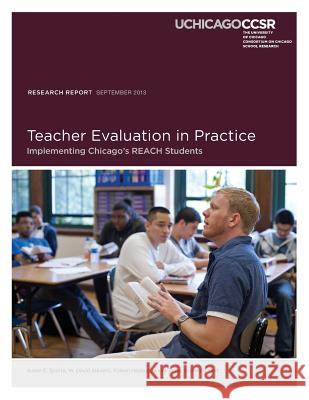Teacher Evaluation in Practice: Implementing Chicago's REACH Students » książka
Teacher Evaluation in Practice: Implementing Chicago's REACH Students
ISBN-13: 9789856819820 / Angielski / Miękka / 2013 / 44 str.
This report finds that the overwhelming majority of teachers and principals in Chicago Public Schools (CPS) believe the overhaul of the district's teacher evaluation system has promoted teacher growth and instructional improvement; however, teachers also voiced concerns about some elements of the evaluation system, particularly the use of student test scores as a factor in teacher ratings. "Challenges clearly remain for CPS, which must improve communication and training around teacher evaluation and also grapple with teacher's concerns around the fairness of their ratings," said Sue Sporte, the lead author of the report. "Nevertheless, it is promising that teachers and administrators believe the system has the potential to improve instruction, particularly considering that the 2012-13 school year began with the first teacher strike in CPS in over 25 years, and teacher evaluation was a major point of contention." The report is part of a joint study by UChicago CCSR in collaboration with CPS and the Chicago Teachers Union of REACH (Recognizing Educators Advancing CHicago) Students - CPS's teacher evaluation system implemented during the 2012-2013 school year. Chicago, the largest district in the nation to put in place a rigorous new system for measuring teacher effectiveness, has become a national test case for revamping teacher evaluation. More than 40 states, including Illinois, have passed legislation in the last few years mandating the evaluation of teachers based on a combination of student performance and the close examination of teacher practice. States and districts have adopted these new systems in response to a number of factors, including a growing body of research on the importance of teacher quality and incentives from the U.S. Department of Education. This report, the first in a series of reports about REACH, uses survey data and interviews to focus on the perceptions and experiences of teachers and administrators during the first year of REACH implementation. These experiences can be helpful to CPS and to other districts across the country as they work to restructure and transform teacher evaluation. The study of REACH was generously funded by the Joyce Foundation, which supports the development of policies that both improve the quality of life for people in the Great Lakes region and serve as models for the rest of the country.











